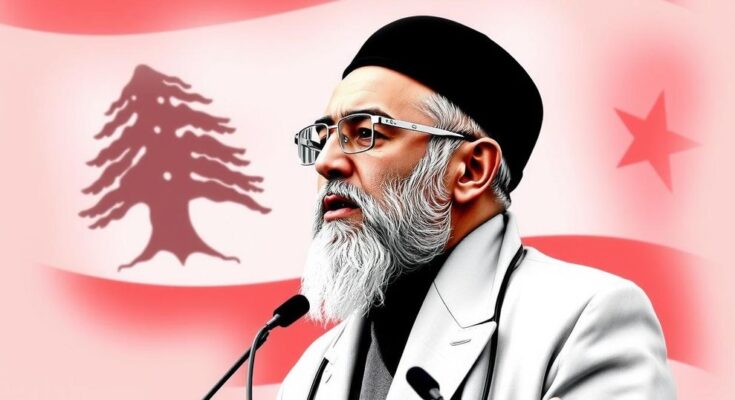Lebanon is set to elect a president on Thursday, with Chief of Staff Joseph Aoun as the strongest candidate. His potential leadership raises questions about Hezbollah’s disarmament and Israel’s security presence in southern Lebanon. The urgency is heightened by the impending expiration of a cease-fire agreement, with Israel signaling an extension of its military presence following Lebanon’s unfulfilled commitments.
On Thursday, Lebanon will hold a crucial parliamentary session to elect a new president, with Chief of Staff Joseph Aoun emerging as the leading candidate. His potential presidency raises significant questions about the future of Hezbollah’s military presence in the region. There is speculation about whether Aoun could initiate a campaign to disarm Hezbollah in southern Lebanon, or if the situation will compel Israel to reinforce its foothold in the area, reminiscent of the security measures taken during the 1990s.
The looming expiration of the 60-day cease-fire between Israel and Lebanon in approximately three weeks adds urgency to the electoral outcome. The Lebanese government’s failure to fulfill its commitments under the cease-fire agreement has not gone unnoticed. Israel has signaled to Lebanon, as well as to the United States—which has taken a supervisory role in the cease-fire negotiations—that its military presence in southern Lebanon will be extended beyond the original agreement, specifically until February 26.
Lebanon’s political landscape is heavily influenced by the dynamic interplay between various factions, notably Hezbollah. The upcoming presidential election could redefine the balance of power as Chief of Staff Joseph Aoun seeks to ascend to leadership. Historically, the region has experienced significant military engagements, particularly regarding Israeli operations in southern Lebanon and Hezbollah’s responses. Understanding the broader implications of this election is crucial, especially considering the tensions and commitments tied to the cease-fire agreement with Israel.
The announcement of Lebanon’s presidential election presents a pivotal moment for the nation, particularly concerning Hezbollah’s power and Israel’s military stance in the region. The election of Joseph Aoun could potentially lead to a significant shift in policy regarding Hezbollah’s disarmament. Simultaneously, Israel’s commitment to maintaining its presence in southern Lebanon underscores the fragile security situation, which may shape the future geopolitical landscape of the area.
Original Source: www.haaretz.com




